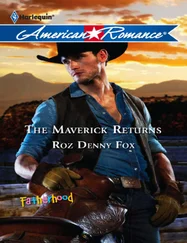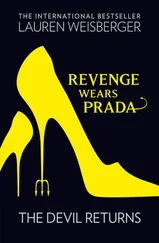There were about a thousand men in his camp. Most were only a generation or two removed from their roots in Europe. If one thing united them, though, it was their pride in being Americans-a pride enhanced by their shared, daily mission. So when the Germans annexed Czechoslovakia, those who came from Germany felt no animosity from their Czech or Slovak campmates. Similarly, the only nationalistic fervor touched off in the Winooski Valley by the Italian invasion of Albania or the Soviet-Finnish War was a shared dread of what might happen next and how it would affect the USA.
“It’s going to be different for us,” said Joe Lucadello one night. He was a tutor, too. They were the last ones in the classroom building, locking it up. “Italians. Just wait.”
Joe’s people were from Genoa by way of Camden, New Jersey. He’d wanted to be an architect, but his family had lost everything in the stock market crash. Now he designed retaining walls and picnic shelters. Smart as a whip and about as skinny, Joe was Michael’s best friend in the corps.
“I’ve been thinking the same thing,” Michael said. If America was drawn into the European war, everyone of Italian descent would be suspect.
“The German fellas look just like-”
“I know,” Michael said. “You’re right.”
“Don’t laugh, but I’ve been working on a plan to kill Mussolini.”
“Come on,” Michael said, laughing. “How are you going to do that?”
“I didn’t say I knew how. I said I’m working on a plan.”
Joe was that rare combination: a resourceful schemer who was prepared to act. Ordinarily, he was practical, too, but he had an idealistic streak.
“You couldn’t get within five miles of Mussolini. Nobody could.”
“Think about it. You read a lot of history books. There’s never been anyone-any hero, any villain, any king, any leader of any kind-that it was impossible to kill.”
It was a sobering thought. Michael did think about it, and he admitted that maybe Joe was right. “I suppose when you’re done with Mussolini you’ll go after Hitler.”
“I know I’m just dreaming,” Joe said. “I’m not a fool. I know I’m not really the man for the job. It’s just hard to watch the way the world is going and not do anything about it.”
On this they agreed. The ancient rift between northern and southern Italians had no effect on their friendship or their shared contempt for Mussolini. They dreaded war. At the same time-because it would crush Mussolini and at the same time be a chance for men like them once and for all to prove themselves in the eyes of the American people-they yearned for it.
Then there was the matter of Ustica. About the same time Mussolini signed the Axis treaty with Hitler, he ordered his army to Sicily to round up all known or suspected Mafiosi and imprison them on the tiny island of Ustica (Vito continued to regard Mussolini as just another vainglorious oppressor whose time would come and go). When Michael and Joe talked about the men imprisoned at Ustica, they lamented the lack of American due process. Michael gave no indication of his father’s allegiance with those men. Joe knew the Corleones as olive oil importers. There were cases of the stuff in the camp’s mess kitchen.
In June of 1940, when Italy declared war against the Allies, Joe Lucadello had a plan. “We go to Canada,” he said.
“What’s in Canada?”
Joe pulled out a newspaper clipping. According to the article, the Royal Canadian Air Force was seeking experienced American pilots. A World War I ace named Billy Bishop-“the Eddie Rickenbacker of Canada,” the article called him-would oversee their training personally.
“That’s great,” Michael said, “but we’re not experienced pilots.”
Joe had it all worked out. He had a friend, a Polish Jew from Rhode Island, who was a pilot for the CCC, dumping water to fight forest fires and spraying DDT on bug-infested areas where crews were about to work. Joe got the guy to give them lessons, and they all three went to Ottawa to join up. Joe convincingly forged licenses for him and Michael. They were all initially accepted. Two days later, Billy Bishop himself walked into the barracks and asked to see Michael Corleone (which he pronounced correctly-a tipoff something was up). He asked to see Michael’s pilot’s license. There were a number of men in that room without licenses, some of them crop dusters and barnstormers who a few months later would be holding their own against the Luftwaffe. The license wasn’t the point. Somehow, Michael knew, his father had found out he was here. There was no sense using the forged license and possibly getting Joe kicked out, too. “I’m sorry, sir,” Michael said to Billy Bishop. “I don’t have one.”
Michael took a bus back to the camp and got his job back. Six months later, he was on another bus, heading to New York for a surprise birthday party for his father, when the driver heard the news about Pearl Harbor. Shaking, he pulled over to the shoulder and turned up the radio. Eventually, they got back on the road. Michael walked straight from the bus terminal to Times Square. The place was teeming with men bragging about the killing they were about to do. Michael got in the line for the Army Air Corps, but as he waited an officer walked down the line and told everyone who was under five ten that he’d have to seek his revenge in another branch of the service. Michael missed the height requirement by an inch. The Marines, too, appealed to his ideals. An elite fighting squad, tougher than the rest, with a rigorous initiation and a sacred code of honor. They had the same height requirement, but emotions were running high, and Michael and the lieutenant signing him up gave each other a look and an understanding passed between them. Michael caught a cab to his father’s house.
Vito Corleone’s favorite child was the last person at the party to say “Surprise!”
Vito was stoic about Michael’s news. He asked the questions any loving and concerned father would. It was clear that he did not approve, though he never said so.
In the days that followed, the U.S. government rounded up the Italian citizens within its borders and held them as prisoners of war (Enzo the baker, for example, would spend two years in a prison in New Jersey). In addition, more than four thousand American citizens with Italian names were arrested. Theresa Hagen’s parents were among them, though they were not charged and were quickly released. Hundreds of people with less sophisticated legal representation were detained much longer-months, years-even though they, too, were charged with no crimes.
Before Christmas, the government issued an edict that restricted the participation of Italian Americans in war-related industries. All over the country, hardworking, law-abiding American longshoremen, factory workers, and civilian clerk-typists were summarily fired.
By then, Michael was at Parris Island, crawling like a reptile across a parking lot covered with broken oyster shells.
Four percent of the American population came from Italy. They were destined to make up ten percent of the casualties.
Everything the government issued Michael Corleone was too big-his helmet, his uniform, even his boondockers. He barely noticed. He was proud to be a Marine, and he saw what he wanted to see. But the first time his mother saw the picture of her youngest son, hair shorn, dressed in ill-fitting dress whites that looked more like a costume than a uniform, she burst into tears and didn’t stop crying for three days. She then put the photo on the mantelpiece. Every time she passed it, the tears began anew. No one dared to move the picture, though.
Michael Corleone’s platoon at Parris Island had forty-seven men, all from the East, with a fairly even split between northerners and southerners. Michael had never been in the South before. He knew more about the rivalry between north and south in Italy than the one here, and was surprised by how similar those two rivalries turned out to be. Being from southern Italy and northern America, he could see both sides. And the arguments were over nothing. Music, for example. The southerners liked what the northerners called shit-kicker music. The northerners liked Cole Porter, Johnny Mercer, classy numbers they could dance to. Though Michael had known Johnny Fontane all his life, he kept that to himself during the many arguments waged over his music. Any time some petty squabble made the men even for a moment forget about the real enemy, their DI made them regret it-by becoming the real enemy. They’d all arrived most afraid of being afraid, of failing to do their duty when the time came. An hour later, they were more afraid of Sergeant Bradshaw than anything. Michael was a quiet, able soldier, but he spent his days convinced that at any moment his DI might kill him. At night, Michael lay sweating in his bunk, thinking about what a brilliant system boot camp was.
Читать дальше











